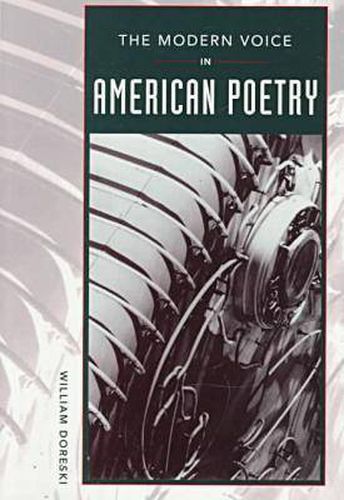Readings Newsletter
Become a Readings Member to make your shopping experience even easier.
Sign in or sign up for free!
You’re not far away from qualifying for FREE standard shipping within Australia
You’ve qualified for FREE standard shipping within Australia
The cart is loading…






Proposing that modern American poetry requires
limber criticism
informed but not straitjacketed by contemporary theory, William Doreski links the major American modernists to each other and to the larger social and cultural world. Concentrating on such poets as Robert Frost, Wallace Stevens, William Carlos Williams, Marianne Moore, T.S. Eliot, Ezra Pound and Robert Lowell, he finds that many share a willingness to expand - or even reject - the boundaries of poetic language.
The Modern Voice in American Poetry
shows how American poets achieved a range of
voice
that distinguishes modern poetry. Doreski demonstrates how much poetry has changed since Wordsworth and Browning both in terms of form and also, perhaps more significantly, in terms of address and subject matter. He offers many specific and detailed examples of how modern American poetry has extended the possibilities of the lyric poem even as it works within an increasingly autobiographical vocabulary.
$9.00 standard shipping within Australia
FREE standard shipping within Australia for orders over $100.00
Express & International shipping calculated at checkout
Proposing that modern American poetry requires
limber criticism
informed but not straitjacketed by contemporary theory, William Doreski links the major American modernists to each other and to the larger social and cultural world. Concentrating on such poets as Robert Frost, Wallace Stevens, William Carlos Williams, Marianne Moore, T.S. Eliot, Ezra Pound and Robert Lowell, he finds that many share a willingness to expand - or even reject - the boundaries of poetic language.
The Modern Voice in American Poetry
shows how American poets achieved a range of
voice
that distinguishes modern poetry. Doreski demonstrates how much poetry has changed since Wordsworth and Browning both in terms of form and also, perhaps more significantly, in terms of address and subject matter. He offers many specific and detailed examples of how modern American poetry has extended the possibilities of the lyric poem even as it works within an increasingly autobiographical vocabulary.